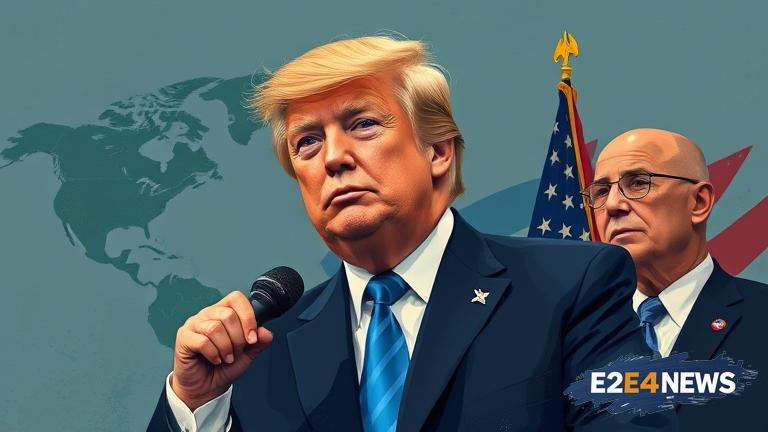The Trump administration’s national security agenda has been a topic of concern for many experts and analysts. The administration’s approach to national security has been marked by a series of controversial decisions and policies, including the withdrawal from international agreements and the escalation of tensions with other countries. One of the key concerns is the administration’s approach to nuclear weapons, which has been characterized as reckless and destabilizing. The administration’s decision to withdraw from the Intermediate-Range Nuclear Forces Treaty, for example, has been widely criticized as a mistake that could lead to a new arms race. The administration’s approach to cybersecurity has also been criticized, with many experts arguing that it is inadequate and ineffective. The administration’s decision to impose tariffs on other countries has also been seen as a national security threat, as it could lead to a trade war and undermine the global economy. Furthermore, the administration’s approach to climate change has been widely criticized, with many experts arguing that it is a major national security threat that requires immediate attention. The administration’s decision to withdraw from the Paris Climate Agreement, for example, has been seen as a major setback in the fight against climate change. The administration’s approach to immigration has also been criticized, with many experts arguing that it is inhumane and ineffective. The administration’s decision to separate families at the border, for example, has been widely condemned as a human rights abuse. The administration’s approach to international institutions has also been criticized, with many experts arguing that it is undermining the rules-based international order. The administration’s decision to withdraw from the United Nations Human Rights Council, for example, has been seen as a major blow to human rights and the rule of law. The administration’s approach to the Middle East has also been criticized, with many experts arguing that it is destabilizing and ineffective. The administration’s decision to move the US embassy to Jerusalem, for example, has been seen as a major provocation that could lead to further conflict. The administration’s approach to North Korea has also been criticized, with many experts arguing that it is reckless and ineffective. The administration’s decision to meet with Kim Jong-un, for example, has been seen as a major gamble that could lead to further instability. The administration’s approach to Russia has also been criticized, with many experts arguing that it is inadequate and ineffective. The administration’s decision to impose sanctions on Russia, for example, has been seen as a major escalation that could lead to further conflict. The administration’s approach to China has also been criticized, with many experts arguing that it is destabilizing and ineffective. The administration’s decision to impose tariffs on China, for example, has been seen as a major provocation that could lead to a trade war. The administration’s approach to the European Union has also been criticized, with many experts arguing that it is undermining the transatlantic alliance. The administration’s decision to impose tariffs on the EU, for example, has been seen as a major blow to the global economy. The administration’s approach to national security has also been criticized for its lack of transparency and accountability. The administration’s decision to classify information, for example, has been seen as a major obstacle to oversight and accountability. The administration’s approach to national security has also been criticized for its impact on civil liberties. The administration’s decision to expand surveillance powers, for example, has been seen as a major threat to privacy and civil liberties. Overall, the Trump administration’s national security agenda has been widely criticized for its recklessness, ineffectiveness, and lack of transparency and accountability.
